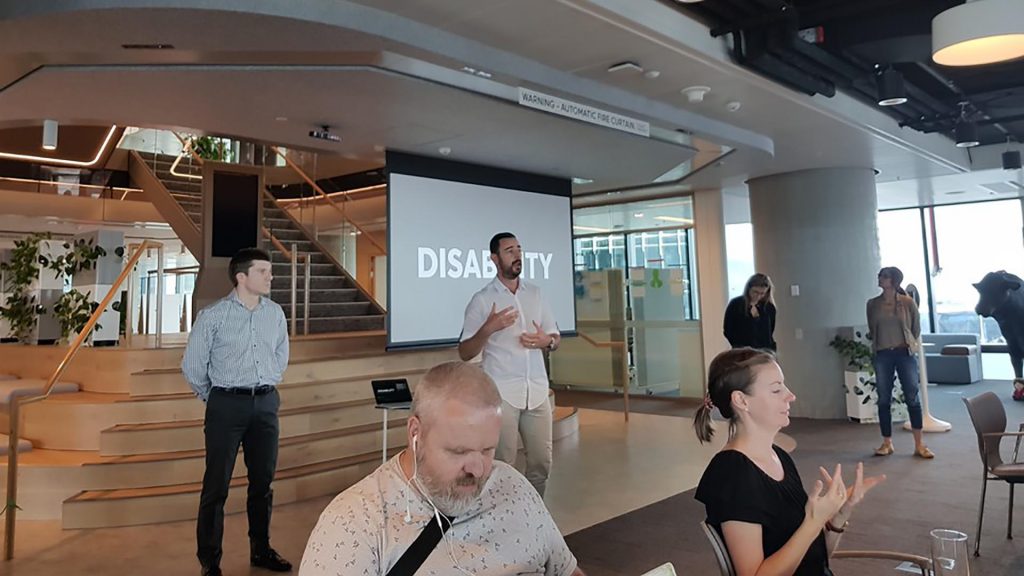
Microsoft Australia Celebrates Global Accessibility Awareness Day
Microsoft’s mission is to empower every person and every organisation on the planet to achieve more. With around one in five Australians having some form of disability – we can’t deliver on this mission in Australia unless we are empowering people with disabilities.
The 17 May is Global Accessibility Awareness Day (GAAD) and as a company we’ve been heavily focused on ensuring that our products and services are accessible to people with disabilities; and ensuring that our customers like the NSW Department of Education can create inclusive experiences for all their users.
Building on this, on GAAD we launched the Xbox Adaptive Controller (pictured right) to help more gamers game; we highlighted some new accessibility features in Windows; and we released a short film on how we’re reimagining accessibility. We launched a new Microsoft Accessibility website to make it easy to find, discover and experience all that we are doing.
We’re really excited by the opportunity for Artificial Intelligence to transform experiences for people with disabilities and we have $US25 million over the next five years to invest in potential solutions under our AI for Accessibility program. We’re seeking to extend this focus on accessibility to our partner community in Australia – ensuring that they have opportunities to learn more about accessibility.
In March we ran a Hack4Good at PwC’s Barangaroo offices, focused on hacking solutions for people with disabilities. Around 12 of our partner organisations were involved with 8 teams finishing the hack and pitching their ideas – SapientRazorfish, Clinic to Cloud, Humanitix, PwC, Gravity Consulting, Digital Reign, Solentive and RecordPoint.
The teams were presented with a set of ideas cultivated through consultations run by Social Ventures Australia with leading disability organisations including Vision Australia, the Deaf Society, the Australian Network on Disability, the Centre for Inclusive Design and the Australian Paralympic Committee. These ideas included a personal passport to remove the need to constantly re-communicate your disability and requirements; a knowledge bank of relevant services and products; and improved remote support for people with disability, particularly those in rural and remote areas.
Over the two days, we had a number of people generously donate their time to ensure our teams gained from their perspective and lived experiences. I particularly want to call out David Woodbridge from Vision Australia; Leonie Jackson from the Deaf Society of NSW; Rocco Cutri from KPMG and Microsoft’s own Kenny Johar Singh for their invaluable guidance to our teams over the course of the hack.
We had three winning teams. Humanitix who have added an accessibility feature to their ticketing platform guiding and prompting event organisers to call out the accessibility features of their event; Clinic to Cloud who proposed a personal disability passport to easily communicate with service providers; and PwC who explored the use of our cognitive services to clearly communicate the emotions of users during a Skype call for those who couldn’t see or for those with bandwidth issues impacting visuals.
Humanitix have already gone live with the accessibility feature on their platform and fittingly the first event using it is a fundraiser for the Pararoos – Australia’s national football team for people with cerebral palsy and brain injury.
More importantly, we had around 50 people who were engaging with people with disabilities and now have a better understanding how to meet their needs in the solutions they develop.
This originally appeared as a LinkedIn Post.















